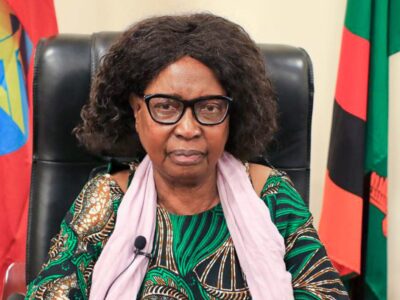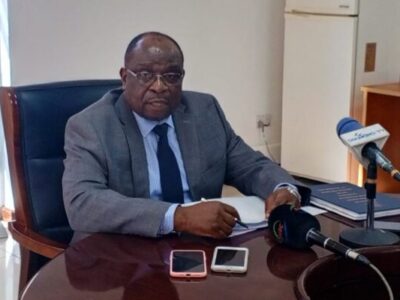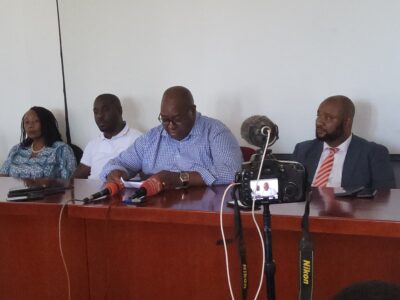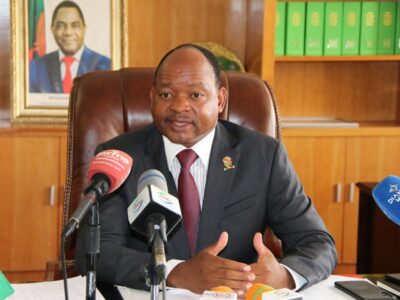A consortium of Civil Society Organizations (CSOs) and legal experts have voiced serious concerns over the proposed Cybersecurity and Cybercrimes Bills currently before Parliament, warning of potential threats to democracy, human rights, and constitutional freedoms.
The group, which includes the Law Association of Zambia (LAZ), Chapter One Foundation (COF), MISA Zambia, and the Media Owners Association of Zambia (MOAZ), raised the alarm during a media briefing held at MISA offices in Lusaka on Thursday.
LAZ president, Lungisani Zulu, acknowledged the government’s responsibility to safeguard national security but highlighted problematic provisions, particularly in Parts 4 and 5 of the bills, which he argued could erode democratic values.
“The surveillance features in the bills could give the state excessive access to personal data,” Zulu warned. “Laws governing cybersecurity should protect constitutional freedoms, not infringe on citizens’ rights to hold the government accountable.”
Zulu urged the government to consult widely with legal experts, CSOs, and the public, recommending alignment with international standards like the Budapest Convention on Cybercrime to balance cybersecurity with human rights.
Chapter One Foundation Board Chairperson Serah Longwe also opposed the bills in their current form, describing them as a threat to democracy and government accountability.
“The bills concentrate excessive power in the presidency, infringe on privacy, and enable mass surveillance,” Longwe stated, further criticizing ambiguities that could criminalize legitimate civil society activities and silence whistleblowers.
MOAZ President, Costa Mwansa, in remarks delivered by MISA Board Chairperson Lorraine Mwansa, echoed these sentiments, warning that the proposed laws could lead to the interception of private communications, potentially weaponizing such powers for political ends.
Meanwhile, Independent Member of Parliament, Christopher Kang’ombe, suggested that lawmakers and the public be given sufficient time to scrutinize the bills during Parliament’s two-month recess.
“The laws may need to be withdrawn for review when Parliament resumes next month,” Kang’ombe predicted, emphasizing the need to remove provisions that allow law enforcement to intercept communications without court orders.
The CSOs called on the government to ensure that cybersecurity laws are balanced, transparent, and respectful of constitutional freedoms to uphold Zambia’s democratic values.
WARNING! All rights reserved. This material, and other digital content on this website, may not be reproduced, published, broadcast, rewritten or redistributed in whole or in part without prior express permission from ZAMBIA MONITOR.












Comments